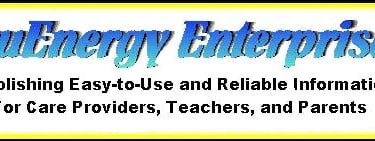Community!
Written by: Michael S. True, M.Ed
This article is copy protected and should only be reproduced by permission of the author. For information contact me at:
Most of us make our way out of our front door every morning, take in a breath of fresh air, and focus on the tasks we have set for ourselves that day. We take for granted the houses, apartments, businesses, and most importantly, the people that surround the place we call home. Sometimes we know our neighbors by name. Sometimes, we don't.
We know where the local supermarket is. We know that people will be waiting there to provide a service, (bringing food and household supplies to a convenient location). We know where the post office is, the bakery, the gas station, the drug store. We expect to wake up every morning and find them still standing and prepared to meet our needs.
We also take for granted public services, such as police, firemen, doctors, and the system that provides our drinking water. For many in our society, these things are not given a second thought. The sense of being a part of a community may simply come down tol owning or renting a piece of real estate.
Others, however, have come to see the meaning of community in a different light. It may instill a feeling of belonging, of security. There can be comfort in its familiarity. Those that belong know that they belong. Collectively, the day-to-day stress of surviving is eased. These individuals are actively involved in being a part of their communities. The concept gives purpose and direction.
Community, as defined in Merriam Webster' Colligate Dictionary: 1: a unified body of individuals…
Simple and straight to the point. It is a grouping, if you will, of people from any and all walks of life, (no physical or mental characteristics are noted in most primary dictionary definitions.) It is the common ground, the personal connections, that give each community its unique nature. This is the true essence of community!
And community takes on an even broader meaning when you consider the exchanging of information, common interests, and ideas that in today's world can take place with almost anyone, anywhere. Individuals in a community can live beside each other, be from different cities and towns, states, provinces, and even nations.
And how are communities formed? There is another word which bears the same prefix:
Communicate, as defined in Merriam Webster' Colligate Dictionary: 1 archaic ; SHARE 2 a: to convey knowledge of or information about:
Make Known
I have said before that communication is the key. But the key to what?
It is truly the key to Community!
Often when we communicate with those around us we are moved to do things for others, providing for the "common good". We understand that the qualities of caring, sharing, and loyalty are held in high regard by those making up a social network. It is often enough being a part of a community, if for no other reason than to recognize our own value to those around us.
It is easy to see why we feel more a part of a community when we contribute to it. Raising money for the Girl Scouts, perhaps. Tutoring a child in reading, volunteering to clean a stretch of highway, bringing food to a shut-in, each provides us with a sense of being a part of something greater than ourselves.
In order to accomplish such altruistic tasks we must communicate. We must seek out the needs and provide the resources, which we alone may possess to meet those needs. Talking to friends and neighbors, even to strangers who make up a community gives us insight into how we can become more involved.
If we isolate ourselves, this sense of community is diminished. We tend to see ourselves as having less importance, less influence, and ultimately less control. Such isolation also contributes to ignorance and misunderstandings. These are the seeds of suspicion, bigotry, and prejudice.
Personally, I see building communities as a positive movement. It is an interaction with others, which benefits everyone within the community. Building is a process. It requires time, energy, and other personal and business resources to make it happen. When you think about it, the risks are few and the rewards are many. This is how communities grow and thrive. Assessing needs and determining the availability of resources is at the core of this process. Bringing in or calling for new resources to match the needs of a growing neighborhood can be rewarding both in a social services sense, as well as, in a business context.
This is one reason why I would encouraged you, my readers, to consider becoming an active member in your community. It is more an exercise in communicating and connecting with those of like mind and spirit than anything else. It is a chance to be a part of something greater than yourself, to increase your awareness and understanding of the world you live in today.
Getting to know your neighbors may certainly prove useful in times of emergencies, such as natural disasters. Getting to know who frequents your neighborhood also serves to determine the presence of strangers and can give an added sense of security; if you are a part of a neighborhood watch group, for instance. But above all, communicating with neighbors can be a gateway to social connections, with the potential for forming lasting friendships happening every day along the way.
No matter where you live, or what your personal circumstances may be, you can be a valuable member of a community, "a unified body of individuals"…
(C) 2003-2024 Michael S. True - TruEnergy Enterprises

